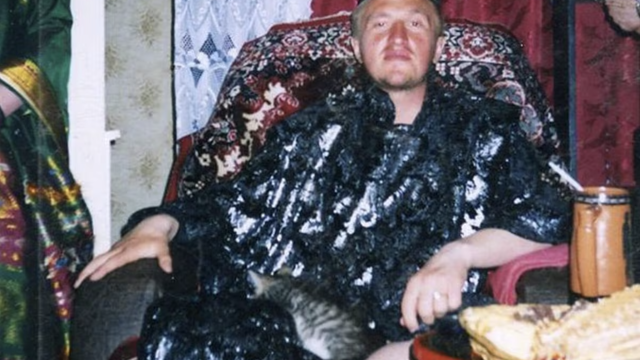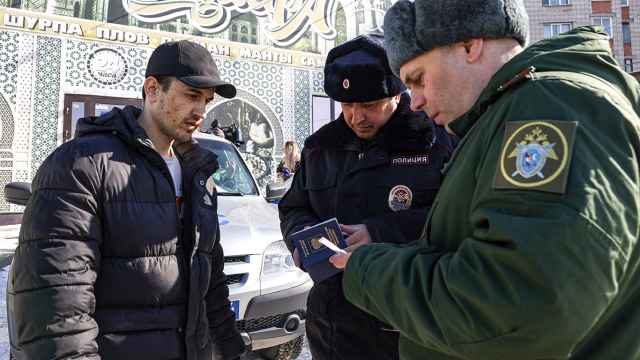Wealthy Russians are likely to favor a popular British citizenship-for-investment program despite a shifting legal landscape and a looming threat of EU sanctions connected to the Crimea crisis, people familiar with the situation said.
Millionaires have flocked to Britain's Tier 1 investor visa program in recent years. Between 2008 and 2013, Britain granted 433 visas to Russian investors through the program, more than to any other nationality during the period.
The program, which launched in 1994, offers a range of citizenship options to applicants looking to invest upwards of £1 million in Britain.
Although applicants are required to spend a minimum of 180 days per year in the country to qualify for the program, investors can circumvent this requirement by listing a spouse as the primary applicant.
Recently proposed changes may threaten the program's cost-effectiveness and simplicity. In February, the British Migration Advisory Committee, or MAC, proposed raising the investment threshold to £2 million and encouraging riskier investments.
Many of the MAC recommendations are likely to pass, given the respect the independent advisory body holds, said Anatoly Gakenberg, an attorney specializing in citizenship-for-investment programs.
The British Home Office and the British Embassy in Moscow did not reply to requests for comment.
Meanwhile, the European Union has threatened various sanctions amid escalating tensions over Russia's handling of the Ukraine crisis. On March 6, the EU announced the suspension of visa-liberalization talks with Russia, and warned that other measures could follow, possibly as soon as Monday.
Asset freezes and travel bans may be implemented against certain Russian officials as well, potentially to be followed by "additional and far-reaching consequences."
British politicians have also expressed strong support for possible EU sanctions. "Hesitancy or weakness on the part of the EU about its response will send precisely the wrong message," said Ed Miliband, leader of Britain's Labour Party, BBC reported.
Despite these difficulties, people who assist Russians in obtaining the visas said that Russian investors would likely continue to enjoy the benefits of the Tier 1 program.
Phillip Barth, top immigration attorney at Withers LLP, said the program would remain an attractive option because of Britain's friendly attitude toward foreign investment. In contrast, a similar program in the U.S. requires extensive proof of the source of an investment, while Britain merely requires that the money be held in a freely transferable bank account under the investor's name for 90 days.
"The Brits have always been very welcoming to capital, no matter what part of the world it comes from, as long as it is legitimate," Gakenberg said.
Furthermore, Britain will remain more attractive to investors than some of the alternatives, said Matthew Roazen, special counsel at Withers LLP. Roazen explained that the perceived strength of Russian and Cypriot law enforcement ties has discouraged investment in Cyprus, noting that his clients are "not interested in sharing with the Russian government what their plans are with respect to passports and residences."
Still, Gakenberg encourages clients to apply for the program before the proposed amendments take effect, while costs are still relatively low.
If the recommendations are adopted, Barth said, citing a source at the Home Office, the legislative protocol would make it very difficult for the changes to be implemented before early April.
Separately, a similar program in Latvia that has proven popular among Russian investors is also likely to remain intact.
In 2010 Latvia began offering residency permits in exchange for real estate purchases and business investments. The program features the added benefit of visa-free travel within the Schengen zone.
Some Latvian citizens and politicians have protested Latvia's residency-for investment program, arguing that the program allows too many foreigners, especially Russians, into the country.
In light of significant financial gains by its real estate sector, Latvia is unlikely to limit the participation of Russian nationals in the program, said Vanags Alfs, director of the Baltic International Center for Economic Policy Studies. Alfs said that while he expected Latvia to follow the EU on any policies connected to the Ukraine crisis, independent action is unlikely.
Contact the author at s.scove@imedia.ru
A Message from The Moscow Times:
Dear readers,
We are facing unprecedented challenges. Russia's Prosecutor General's Office has designated The Moscow Times as an "undesirable" organization, criminalizing our work and putting our staff at risk of prosecution. This follows our earlier unjust labeling as a "foreign agent."
These actions are direct attempts to silence independent journalism in Russia. The authorities claim our work "discredits the decisions of the Russian leadership." We see things differently: we strive to provide accurate, unbiased reporting on Russia.
We, the journalists of The Moscow Times, refuse to be silenced. But to continue our work, we need your help.
Your support, no matter how small, makes a world of difference. If you can, please support us monthly starting from just $2. It's quick to set up, and every contribution makes a significant impact.
By supporting The Moscow Times, you're defending open, independent journalism in the face of repression. Thank you for standing with us.
Remind me later.





